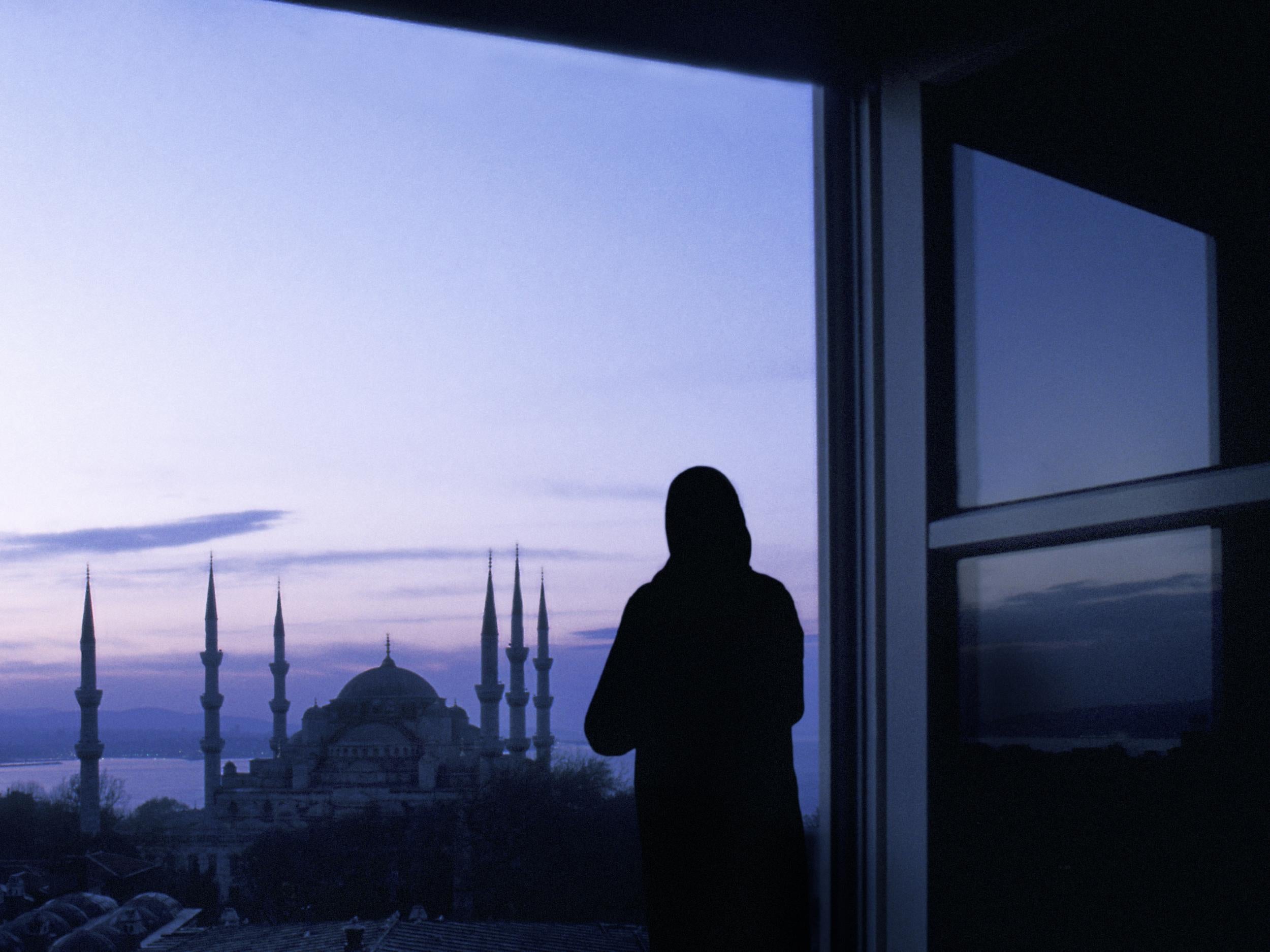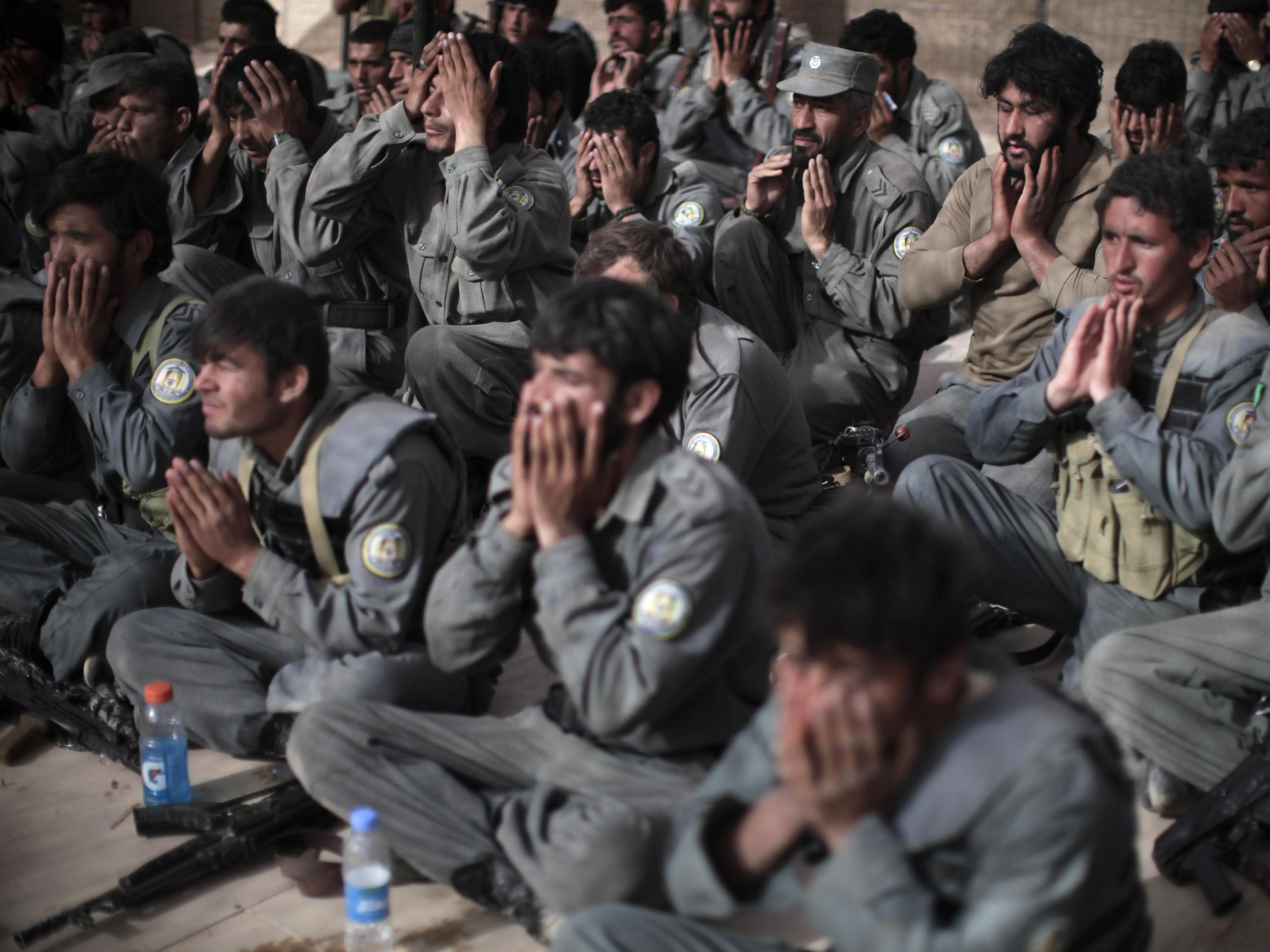Dreams Versus Reality for an Afghan Woman
"He promised when he came home that I could remove my burqa, and he was going to bring me good clothes, and we would have a good life. He was a good man, and a good husband."
"He would say, 'I will never leave my country to them [the Taliban], as long as there is blood in my body, I will fight them.' Whenever he went out, I was always watching the door until he came back."
"I lost him and I was thinking, 'How could this happen to me?' But it is God's decision, so I can say nothing."
"Once I had dreams, but I cannot talk about my dreams with anyone, because I am a woman."
"Once I wanted to study and be an educated woman who could stand on my own two feet, but in my culture it is not possible. Now my biggest dream is that I do not want this husband to be killed by the Taliban. I ask God to protect him."
Khadija, 18, Afghanistan
 |
‘Some lesser person would not have survived what she has survived’
Alamy
|
"My wife is very strong. Some lesser person would not have survived what she has survived."When Khadija was six years old she was married to her cousin, 21 year-old Zia Ul Haq. They lived in a farming community in Marja, Afghanistan. This was not an unexpected marriage between first cousins, but a traditional custom among the Pashtun, the most populous tribe in Afghanistan. The marriage would be consummated by custom, when Khadija reached 11 years of age, or when she reached puberty, whichever came first.
"She is not expecting very much from me; financially I don't have much to give her, just good words and good behaviour."
"Even though I believe men should beat women when they don't listen, I have never had to beat her."
Shamsullah Shamsuddin, 19, Afghanistan
In Pashtun society the culture preordains women's lives; they are betrothed and married off when they are children. They bear children of their own while still children themselves. They wear burqas when in public, and rarely appear outside the home, since they are burdened with children at an early age and customary religious dictates are that women be confined to the home, that no part of her save her eyes be visible, that they shun the presence of men, that if they fail to comply they be beaten.
Her husband joined the Taliban after shrapnel from a U.S. air strike targeting a house where insurgents were thought to be in hiding, killed Mr. Haq's 8-year-old sister. "They brainwashed him. At first they forced him to join, but then they persuaded him", said his younger brother Shamsullah. A year later, a Taliban delegation carried his shrouded body back to his family, and Khadija was widowed at age ten.
But her married life was not over, for in Pashtun society it is the obligation of brothers to marry their deceased brothers' wives, and so Khadija married Aminullah, Mr. Haq's next-in-age brother. Her father decreed it and Khadija obeyed. Aminullah at 22 had a formidable reputation as a feared Taliban fighter, with the Afghan police. "He could handle every kind of heavy weapon, and the Taliban were afraid of him", said Shamsullah.
Khadija was pregnant with their daughter when Aminullah was killed in 2014 by a roadside bomb on a highway. Which is when the family left Marja, moving for greater safety to Lashkar Gah and it is where, at age 14 Khadija gave birth to her daughter. A wait of four months and ten days (stipulated by the Koran) later, saw Khadija married for the third time, to a third brother. It is a responsibility, marrying the wife of a dead brother, said her third husband: "When you look at her, you always see your brother".
 |
Afghan policemen pray at the US base in Marja
Alamy
|
Khadija and Shamsullah now have a son together, one-year-old Sayed Rahman. Khadija's new husband once worked as an interpreter for the U.S. Marines, for he had mastered English. When the troops left Afghanistan in 2013, he began work as a rickshaw driver at which he earns $5 daily. Because he worked with the U.S. military, the Taliban now threaten Shamsullah. "They say they will kill me and then kill Sayed Rahman."
Labels: Afghanistan, Conflict, Female Subjugation, Taliban, Threats, Violence
0 Comments:
Post a Comment
<< Home